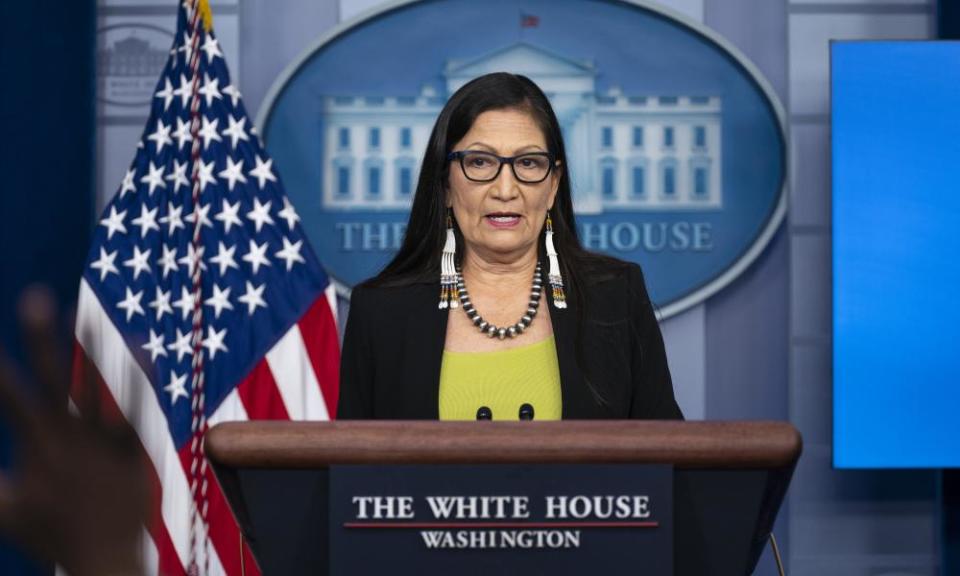Gabby Petito’s death is tragic. But I wish missing women of color got this much attention

The apparent murder of 22-year-old Gabrielle “Gabby” Petito has been a consistent part of the American news cycle since she disappeared on 11 September. Her YouTube presence and participation in the Instagram #vanlife subculture, which involves young people travelling around the country living aesthetically appealing lives in vans and converted buses, provided plenty of content for internet detectives on sites like TikTok and Reddit to consume. Her story is heart-wrenching, especially after police footage has emerged of Petito and her fiance Brian Laundrie, who is now a “person of interest” in her death, having a domestic crisis.
But the story also feels eerily familiar – so familiar, in fact, that there is a term for it: “missing white woman syndrome”. White women, particularly conventionally attractive middle- or upper-class white women, tend to receive disproportionate media coverage when they go missing. Petito’s case is tragic, but the media attention it has attracted replicates a systemic pattern.
Gabby Petito deserves justice; there is no doubt about that. Her death was ruled a homicide by a Wyoming coroner on 21 September, a few days after her body was discovered. She’d been missing for weeks after a roadtrip with her fiance, who returned from the trip without her and soon went missing himself. Her story quickly went viral on social media outlets: a Reddit forum created to track her case has accumulated more than 119,000 members at time of writing, and TikTok videos featuring her have received over 200m views.
It is concerning when policy priorities are so clearly weighted toward victims of certain racial identities and social classes
The media joined in this explosion of attention, and public officials soon followed. Florida Governor Ron DeSantis declared online that he has directed all state agencies to assist with the search for Laundrie, who is on the run. I hope they catch him. According to 2019 numbers, however, there are well over a thousand other missing persons in Florida alone. Media attention influences how politicians and law enforcement agencies allocate resources, and it is concerning when policy priorities are so clearly weighted toward victims of certain racial identities and social classes.
It should be said that a lot of the attention that Petito received can be ascribed to the fact that she already had a devoted online following at the time of her death, vaulting her disappearance into an instant cause célèbre on platforms like TikTok and Reddit. But this does not remove racial bias from the picture. It is not as if media outlets conspire behind closed doors to prioritize white women, but producers, editors and news consumers have biases that influence coverage. This bias may even exist on an algorithmic level: Black TikTok content creators have long argued that their content is more likely to be suppressed. Dances created by Black teenagers are often scooped up and popularized by white kids who are able to amass a larger audience. One TikTok user has provided evidence that the platform feeds people content from creators of the same race as those who created content they’ve viewed in the past, further driving any other biases that may already be in play. There is nothing wrong with Petito’s case getting attention, but there is the lingering question of who isn’t getting the same attention – or any attention at all.
This is especially striking given that women of color are more likely to go missing in the US in the first place. The FBI believes that 33.6% of the Americans who go missing every year are Black, even though Black people constitute only 13.4% of the population. In fact, that number is probably an underestimate, because Black girls are often categorized as runaways and not as missing persons. Black children are also more likely to remain missing. Nonprofit organizations like the Black and Missing Foundation have tried to fill the gaps in law enforcement priorities by shining a light on individual missing Black people and the statistics behind them.
Indigenous women have a lower official rate of missing persons cases, but there is considerable evidence that this is due to underreporting and poor coordination by law enforcement agencies. In 2016, for example, the National Crime Information Center, a federal database, found that 5,712 Indigenous women and girls had gone missing, but only 116 cases were recorded by the US Department of Justice.
Considerable resources were dedicated to finding Petito’s body in Wyoming earlier this week. Yet 710 indigenous people have gone missing in Wyoming between 2011 and 2020. Indigenous people in Wyoming are more likely to go missing, and less likely to be found in the first 30 days. Indigenous women are 6.4 times more likely to be killed, and their deaths receive the least coverage in the state.
None of this reflects on Petito as a person or lessens the sadness of her death. The problem lies with our society, a society that passes anti-abortion laws that devalue the lives of women and those who can give birth, a society in which women who are murdered are usually killed by current and former romantic partners. The US needs to deal with the violence that exists within it, and must reckon with the reality that the attention and resources that go towards cases of violence are based on skin color. The harsh truth is, if Gabby Petito had been Black, her name would have long faded from the public consciousness, if it had ever been there at all.
Akin Olla is a contributing opinion writer at the Guardian

 Yahoo Finance
Yahoo Finance 